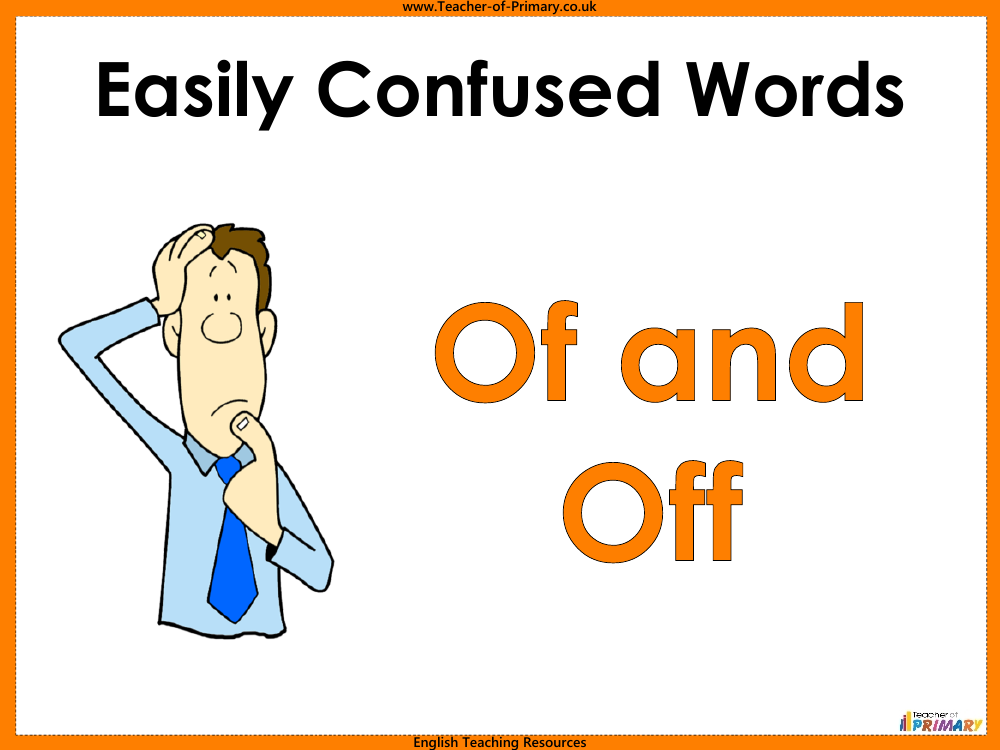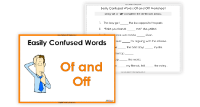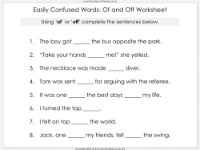Easily Confused Words - Of and Off - PowerPoint

English Resource Description
Understanding the correct usage of 'of' and 'off' is crucial as they are commonly confused words in the English language. Despite not being homophones, they sound quite similar, which can often lead to mistakes in writing. 'Of' is usually used to indicate belonging or composition, as in "My birthday is on the first day of October" or "The ring was made of gold." On the other hand, 'off' typically means 'away from' or denotes separation, exemplified by sentences like "Daisy went off with Sophie" or "We got off the train at York." It's important to note the pronunciation differences: 'of' is pronounced 'ov', whereas 'off' is spoken as it appears.
To reinforce the learning of these terms, students are encouraged to complete sentences by choosing the appropriate word. For instance, they would need to decide whether to use 'of' or 'off' in sentences such as "The boy got ___ the bus opposite the park" or "The necklace was made ___ silver." Additionally, peer assessment is a key part of the learning process, where students swap their work with classmates to review the correct usage of 'of' and 'off'. This exercise not only helps in consolidating their understanding but also in learning from each other through constructive feedback and reflection during the plenary session, discussing any errors and the reasons behind them.


